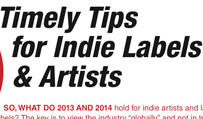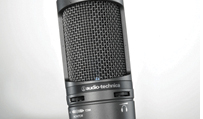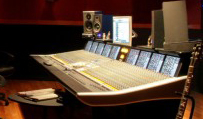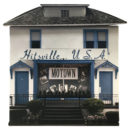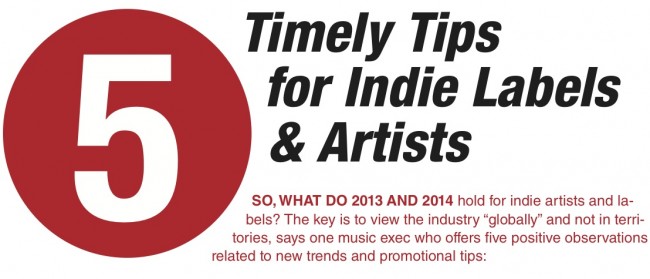
1. Indie Label Opportunities and Partnerships Will Increase
All music companies will be focused on streamlining their efforts this year. This involves smarter processes, innovative developments and keeping overhead low. Independent labels typically have had to function with these elements in place from day one; their ability to stay nimble will allow for continued growth opportunity. As business partnerships continue to solidify between content owners and brands, smaller labels will be able to adapt quickly and profit at lower revenue thresholds. This creates a strategic advantage that, if managed properly, we will see an upward trend and growth for indie labels.
2. Artist Development is Back
The label retaliation against poor industry numbers has historically been to invest less and less into developing artists in order to sustain long-term careers. The result is, you see quick famed one-hit wonders and lots of crap on the radio. Because labels will seize the opportunity by increasing their budgets by investing in apps, online radio and social media, labels will once again focus on developing sustainable careers––not one-hit wonders. Likewise, A&R will also become relevant which will lead to an increase in music industry jobs.
3. Companies Will Hold Stake in Artists and Corporate Sponsor Partnerships Will Increase
Because so many companies are now adopting the Apple advertising model by using relatively unknown musicians in product campaigns, partnership expectations will also change. This will lead to companies expecting 360 deals just like the record labels. For example, if Pepsi makes the collective decision to break an artist by putting their tunes in an upcoming commercial, Pepsi will now expect to have a percentage stake in digital and physical sales for X amount of time. It is an inevitable partnership now that businesses clearly understand the parallel between advertising and music. (Always remember: “Music is Universal.”)
4. Future of Internet Radio Leaning Toward Indie Artists Music
I asked my niece, Adriana, who is now 22 years old, when was the last time she listened to an FM radio station; she replied that it was when she was 13 years old, go figure! She told me “Uncle, come on, who does that?” All the music she listens to is online and on Internet radio. With that being said, I would recommend to start changing your promotional approach from traditional FM radio stations to Internet radio stations. The radio industry has always had a limited number of availabilities for introducing new artists, affected by the increased amount of advertising and availabilities slots, not to mention “support,” meaning spins (that’s another story). In addition, traditional radio still plays to the masses; that means it demands familiar artists and redundancy of songs. The future for music discovery lies with you, the indie artist. And keep in mind, Internet radio is not saturated with advertising, for now!
5. Deciding Your “Ultimate Music Aggregator”
There are hundreds of digital retail stores worldwide. Who do you pick as your “ultimate music aggregator” in positioning, promoting and selling your music to gain the most ground in supporting your overall digital sales efforts? I recently spoke to Steve Norris, one of the partners of Mondo-Tunes, who commented, “While most independent distributors reach only 45-50 retailers, despite charging needless monthly and yearly fees, MondoTunes reaches over 750 retailers and mobile partners in over 100 world regions without any monthly or yearly fees.” He stated that they are the only global distributors that assists in marketing and promotions in supporting artists efforts in getting music heard by the masses. They have a veteran team with familiarity and hands-on experience that covers songwriting, production, A&R, booking, tour management, marketing, distribution, media and licensing. MondoTunes boasts the largest music distribution in the world, and provides upstream services for many major labels in search of breakout artists. What makes MondoTunes unique, is their ability to provide the largest global digital distribution in conjunction with a comprehensive worldwide online marketing campaign to maximize artists’ hype and exposure. Artists retain 100 percent ownership of their own master recordings, publishing, and songwriting credits. My recommendation is very simple—750 retailers in over 100 countries for under $38 an album. Check out http://mondotunes.com.
With all the new changes in the music industry, the goal for any artist or indie label is to make their mark in history. It’s all about mastering “paradigm.” The most critical point to understand about paradigm is that in a paradigm shift, everything goes back to zero. What does that mean? It means that whatever made you successful in the old paradigm may not even exist or be necessary in the new paradigm. Sounds familiar, sure the old music industry platform and the old “brick and mortar” retail systems versus the new digital world of music with hundreds of online digital retailers, online radio and social media support! To master paradigm, you must be able to identify the paradigm shifts that are going on around you and position your brand accordingly. Position yourself for the future, which is now! Take advantage of corporate sponsorship partnerships, develop artists, build and expand your labels brand by finding the “choice” music aggregator in expanding your music worldwide while marketing your brand.
Micro-Bio: C. Michael Brae is the author of the new book, Music Distribution–Selling Music in the New Entertainment Marketplace (Vol.3). He is the Founder and CEO of Hitman Records. See http://hitmanrecords.com.

